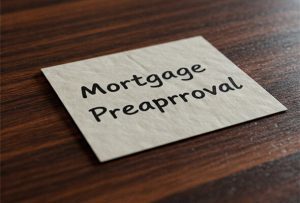In today’s world of complex home lending, you have probably bumped into the term “Qualified Mortgage” at least once already. To put it simply, a Qualified Mortgage (QM) is one of the various types of loans specifically designed to safeguard a borrower’s financial stability and borrower protection.
If you’re someone who’s still navigating the real estate market, currently planning your next major investment, or just want to know more about Qualified mortgages, then this blog is for you! At Sire Finance, we want you to learn more about Qualified mortgages and see how they will shape your financial path.
Understanding a Qualified Mortgage
So, what really is a Qualified Mortgage?
A Qualified Mortgage, or QM, is a type of home loan designed to match a borrower’s ability to pay it back comfortably. The foundation of this loan is built upon clear borrower-friendly terms to ultimately avoid risky loan features like balloon payments or interest-only terms.
Having said that, a borrower or a loanee can acquire a loan with steady and predictable payments that can be tailored to every borrower’s current financial capability.
In essence, QM follows strict guidelines that prioritize transparency, affordability, and security. It provides a structured loan option for potential clients through personal and business means.
This regulatory framework also minimizes the chances of payment issues and penalties, promoting long-term financial well-being for both the borrowers and lenders. If you’re someone who values structure and wants to avoid surprise costs or complicated loan terms, a QM might be the way to go.
How Qualified Mortgages Work
Qualified Mortgages follow the Ability-to-Repay (ATR) rule, which requires a thorough assessment of the borrower’s financial standing before granting a loan. Financial lending companies assess factors such as income, existing debts, and employment stability to determine the client’s eligibility.
This pre-emptive step guarantees that you get a loan proportional to your wages, resources, work, and general economic condition.
For example, suppose you desire to take out a loan for an AED 1,000,000 mortgage. In that case, our incredible loan experts will look at your monthly income, other debts, and expenses to ensure that you can meet the criteria of the expected monthly payments.
On the contrary, if your total monthly obligations are more than 50% of your income, then you may have to reconsider the loan amount or seek another form of financing.
Qualified Mortgage Requirements
For you to qualify for a Qualified Mortgage (QM), you must meet specific criteria to demonstrate your financial ability and long-term sustainability. The following are the requirements for availing of our Qualified Mortgage loans:
Ability-to-Repay Rule
The Ability-to-Repay (ATR) rule mandates the loan company to assess the client’s income, assets, employment, and credit history to confirm they can manage their mortgage payments.
Restrictions on Risky Loan Features
QMs do not allow loan features that can create financial instability, such as:
- Interest-only payments
- Negative amortization (where your loan balance increases over time)
- Loan terms longer than 30 years
Pricing Limits
To prevent excessive interest costs, pricing limits are set on Qualified Mortgages (QM). Therefore, a Qualified Mortgage (QM) must have an Annual Percentage Rate (APR) within a specific range compared to the market rate.
In the UAE, it also means that clients are not charged with unreasonably high lending costs; thus, the issue of affordability and financial stability is preserved.
Limits on Points and Fees
To protect borrowers from overcharging, Qualified Mortgages impose limits on points and fees, ensuring fair loan terms. Points and fee limits are set to prevent you from being overcharged when getting your loans. It is essential for you so that you do not get financially strained and your loan terms are not extortionate.
Key Features of a Qualified Mortgage
Qualified Mortgages (QMs) are specifically designed to prioritize long-term stability. By avoiding risky loan features and requiring solid proof of income, this type of loan helps ensure that every loanee can afford what they are signing up for– as monthly payments are already specifically tailored depending on the loanee’s capability of paying.
Another good thing about qualified mortgages is the fact that there is a cap on upfront costs– this protects every borrower so that they are not going to be hit with overwhelming expenses at the start of their loan. QM also enforces a maximum debt-to-income ratio of 43%, which helps keep your finances balanced and manageable.
Types of Qualified Mortgages
There are different types of Qualified Mortgages that are all unique from each other as they were specifically made to cater to different financial situations. Check them out below and know which type caters to your financial situation the best.
1. General QM
A General Qualified Mortgage follows strict Ability-to-Repay rules, ensuring that lenders assess a borrower’s financial stability using traditional underwriting methods.
2. Temporary QM
A Temporary Qualified Mortgage includes loans that may not meet standard QM requirements but are eligible for purchase by government-backed institutions.
3. Small Creditor QM
Small creditor-qualified mortgages are typically issued by lenders who operate in rural or underserved markets. Therefore, small creditor QM is much more flexible in assessing potential borrowers– making it easier for individuals in unique financial situations to secure financing.
4. Balloon-Payment QM
Lastly, a Balloon-payment Qualified Mortgage is a type of QM that allows borrowers to make smaller monthly payments during the loan term and a larger lump-sum payment due at the end of the contract. Small creditors typically offer balloon-payment QM under specific conditions that provide an alternative financing option for those who need lower initial payment costs.
Pros and Cons of Qualified Mortgages
While Qualified Mortgage (QM) offers stability, some individuals may find the rigid structure less suited to their unique financial needs. Here are the pros and cons to consider in getting QMs:
Pros of Qualified Mortgages
A good thing about Qualified Mortgages is that they fundamentally offer financial security and stability to all clients by ensuring that they meet strict eligibility criteria before securing a loan. These mortgages protect borrowers from predatory lending practices by eliminating high-risk loan features and limiting fees.
Moreover, the predictable repayment terms make financial planning less daunting due to the reduced chance of foreclosure.
Here are the key benefits of Qualified Mortgages:
- Safer, more transparent lending standards
- Reduced risk of foreclosure
- Better loan terms for borrowers with stable income
- Easier to sell to secondary mortgage markets
Cons of Qualified Mortgages
Unfortunately, the strict regulations of Qualified Mortgages can make it difficult for certain borrowers to qualify. Usually, self-employed individuals, seasonal workers, or those with non-traditional income sources may struggle to meet the stringent requirements.
In addition, the inflexible structure of QMs may not be ideal for those who require alternative financing options or need customized loan terms. Borrowers with high debt-to-income ratios may also find it challenging to secure a QM, limiting their options for homeownership.
Here are the key limitations of Qualified Mortgages:
- May exclude self-employed or non-traditional borrowers
- Less flexibility in loan structuring
- Limits on debt-to-income ratios could disqualify some otherwise creditworthy buyers
Qualified Mortgage vs. Non-Qualified Mortgage (Non-QM)
A qualified mortgage is ideal if the client or borrower has a stable job with a good credit score. Since they come into clear terms, there are lower risks and predictable payments. However, if the potential client’s income doesn’t follow a traditional path, qualifying can be difficult.
On the other side, a non-qualified mortgage is made for clients with unique financial situations, such as freelancers, small business owners, or anyone without a steady job. This type of loan is more flexible but may come with higher interest rates and fewer built-in safeguards.
Should You Choose a Qualified or Non-Qualified Mortgage?
Your financial situation, together with your income sources and future plans, are the key determining factors on whether you should select a Qualified Mortgage or a Non-Qualified Mortgage.
But of course, when it comes to buying a home, a Qualified Mortgage (QM) is the best choice if you are looking for a type of loan with clear repayment terms and built-in protection for borrowers. Indeed, QM is a solid and secure choice if your income is steady and your finances are straightforward.
However, non-qualified mortgages (Non-QM) are more likely suitable if you are looking for loans that offer better flexibility– a perfect match for borrowers who are self-employed individuals like business owners or basically anyone with a unique income situation.
Making the Right Mortgage Choice
Getting the right loan doesn’t really need to be complicated. We at Sire Finance specialize in assisting our clients to find the right loan for their needs in the UAE financial market. Whether you require a Qualified Mortgage for structured funding or a non-QM loan for more flexibility, we are here to support you at every stage of the process.
But before you decide, always think first about your financial health, your ability to repay, and what you really want in the long run. And remember, you don’t have to navigate it alone because financial experts like Sire Finance will take the time to understand your goals and craft lending solutions that fit your life.
Contact Sire Finance right now to get the right loan for your future.






